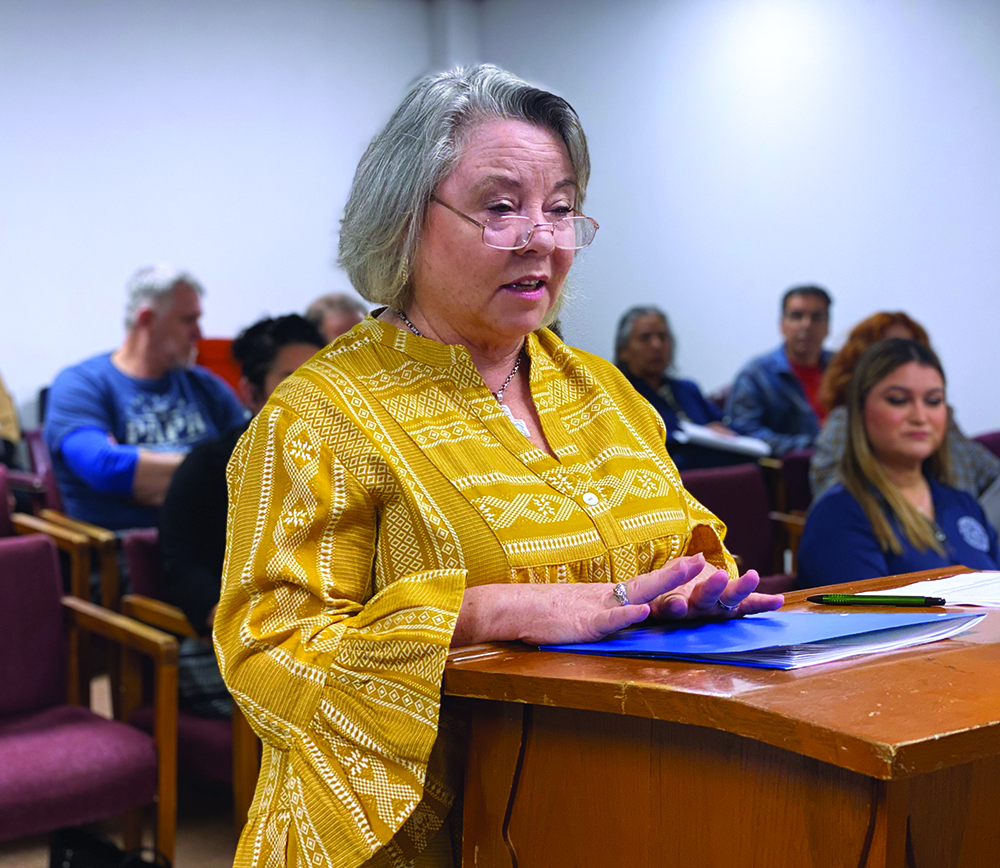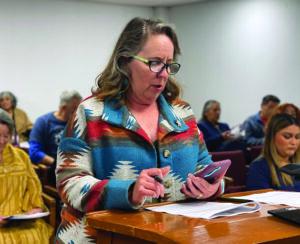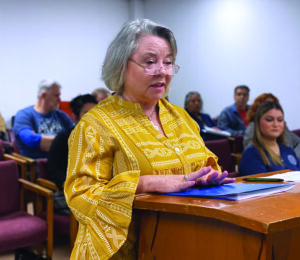By Karen Gleason
The 830 Times
A local attorney working to expand a children’s advocacy program is seeking funding from Val Verde County.
Attorney Megan Martinez, executive director of CASA of Val Verde County, made her second appeal to county commissioners court during its regular meeting on Dec. 4. Martinez spoke during the citizen comments portion of the court’s agenda.
Martinez told the court, “I’ve been here before to talk about services CASA wants to offer to Val Verde County, and I’m very happy to report that we did get our final approval from (the) national CASA (organization), as well as from Texas CASA.”
According to its website, www.nationalcasagal.org, “Court-appointed special advocate (CASA) and guardian ad litem (GAL) volunteers advocate for the best interests of children who have experienced abuse or neglect. Volunteers work with child welfare professionals, educators and service providers to ensure that judges have the information they need to make the most well-informed decisions for each child. There are 941 state organizations and local programs in 49 states and the District of Columbia, with 88,000 nationwide.”
Martinez told commissioners court members on Dec. 4, “We also got our letter for a 501(c)(3), so we are officially a non-profit. I have begun providing services for a CPS (Child Protective Services) case here in Del Rio with five children, and since that time, we have helped them with food and medical appliances, such as a nebulizer for one of the children that has asthma issues,” Martinez said.
She continued, “Again, I’m here asking for support from the county for CASA. I would like to go over a list of just a few key outcomes that CASA can help with in Del Rio.”
County Judge Lewis G. Owens Jr. handed the commissioners the informational memo Martinez had prepared for the court.
Martinez said, “Some of the key outcomes when you have CASA involved: children with a CASA volunteer are more likely to find a safe, permanent home. They’re more likely to be adopted. They’re half as likely to re-enter foster care. They’re substantially less likely to spend time in long-term foster care. They are more likely to have a plan for permanency, especially children of color, and they are as likely to be reunified with a birth parent as a child without a CASA volunteer.”
Martinez said CASA volunteers “spend significantly more time” with children than a paid guardian ad litem and noted CASA volunteers’ children “are less likely to be bounced from home to home.”
“With CASA volunteers there are more services ordered for the children, because some of the volunteers can be very pushy. Also, volunteers spend significantly more time with a child than a paid guardian ad litem. Also, CASA volunteers’ children spend less time in foster care. They are less likely to be bounced from home to home, and they improve the representation of the children.
“Cases with CASA volunteers reduce the time needed by lawyers, which helps reduce costs for the county, and CASA volunteers are more likely than lawyers to file written reports. For each of the nine duties, judges rated CASA volunteers more highly than attorneys. CASA volunteers are highly effective in having their recommendations adopted by the court,” Martinez said.
She also told the court children with CASA volunteers do better in school, are more likely to pass all their courses and are less likely to have poor conduct and be expelled.
“Neighborhood resources, interested adults, sense of acceptance, controls against deviant behavior, models of conventional behavior, positive attitude toward the future, valuing achievement, ability to work with other and ability to work out conflicts are just some of the strengths that children with CASA volunteers have demonstrated. They have a more positive outcome with a CASA volunteer,” Martinez said.
She added, “Some people ask why? What is the difference between a CASA volunteer and a CPS caseworker? Well, first, off the top of my head, as a CPS caseworker, we would have anywhere from 20 to 25 children in our caseload. As a CASA volunteer, you get one case.
“Now, sometimes, it might have five children, like the case that I’m working now, but that’s still just one case, and so the CASA volunteer is better able to focus on the family and do more in-depth work with the family,” Martinez said.
Martinez said she is also working on recruiting volunteers, but added she believes it is important to begin providing services as soon as possible and noted this was also a requirement to become eligible for a grant from the Texas Health and Human Services Commission.
“So, again, I’m asking for financial assistance from the county. I think CASA will benefit Del Rio in the long run, and we have plans to grow. The CASA of Greater West Texas in San Angelo is just huge; it’s wrap-around services. Children who have been sexually assaulted can go there to have their forensic interviews instead of having to go to the hospital, and it’s things like that: parenting classes, counseling.
“That’s a long-term goal. We want to incorporate other counties such as Kinney, Terrell, Maverick, Dimmit and Zavala and serve as many kids as we can to do as much good as we can,” Martinez finished.
County Commissioner Pct. 3 Beau Nettleton said, “Judge, can we put this on the agenda so we can actually have a discussion?”
Owens said he would provide Martinez with his email address.
Nettleton told Martinez, “If you could come back at our next (meeting), that way we can actually have a discussion with you about what you’re asking for. I think you have a great program, I just can’t really discuss it with you.”
The commissioner was referring to the fact that the court typically does not interact with people speaking during citizen comments, neither to make comments nor to answer questions.
The writer can be reached at delriomagnoliafan@gmail.com




